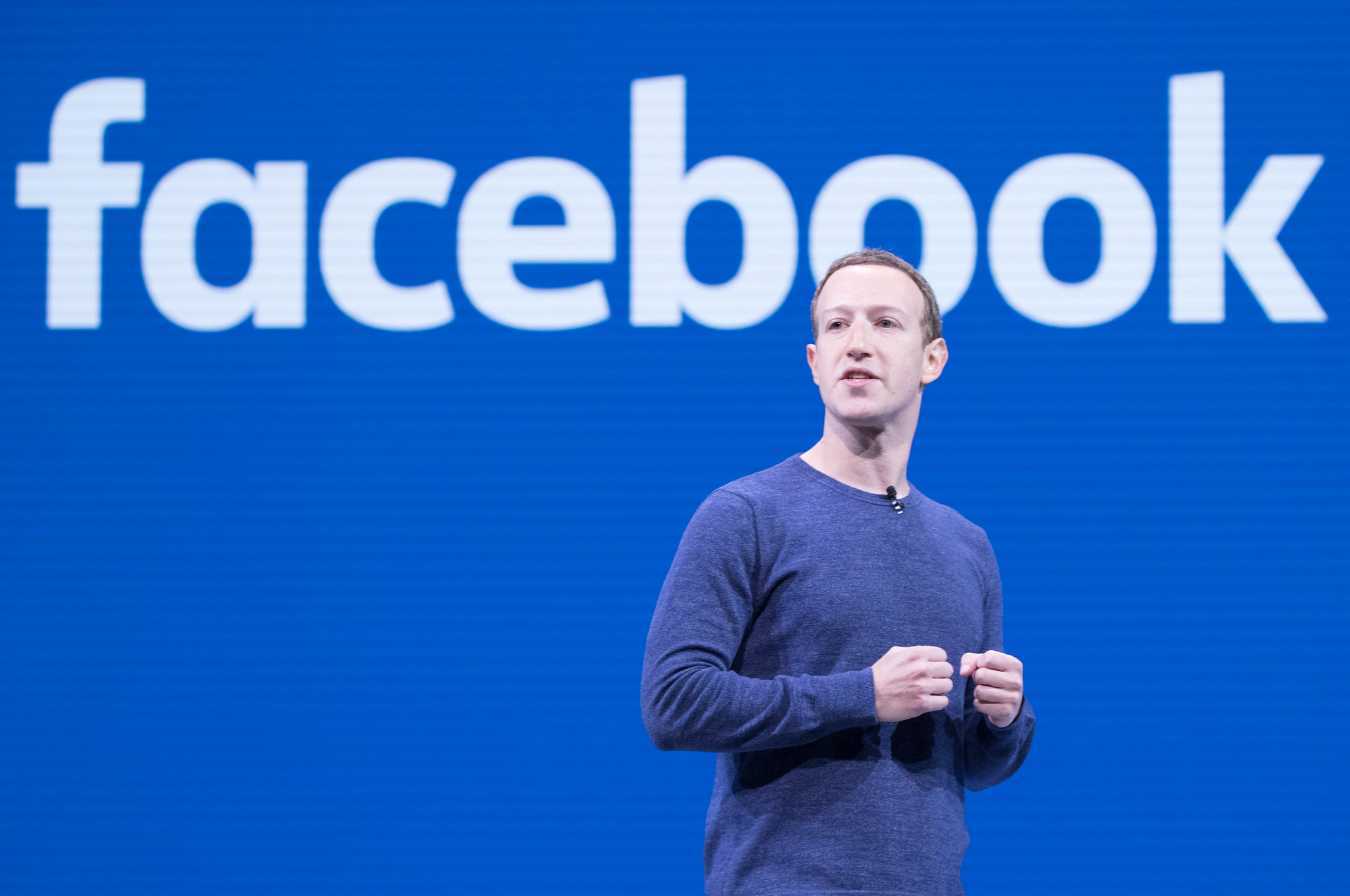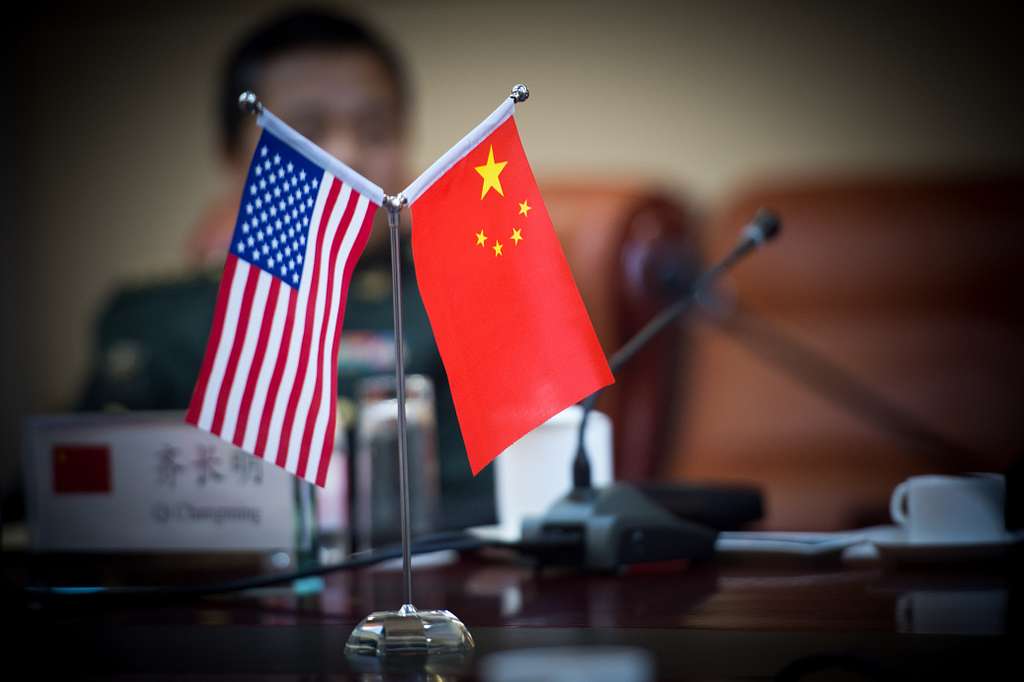The Thing About Facebook
A Review of Sarah Wynn-Williams’s “Careless People: A Cautionary Tale of Power, Greed, and Lost Idealism” (Flatiron Books, 2025)

What is it about Facebook? Why does Mark Zuckerberg’s company receive such a disproportionate amount of attention—these days, mostly negative—compared to others in the social media industry?
Part of the answer is that Zuckerberg runs the largest social media company, which he renamed Meta in December 2021 and which comprises not only the Facebook app but also Instagram, WhatsApp, Messenger, Threads, and a leading artificial intelligence business. But it’s more than the company’s extraordinary reach of 3.3 billion daily users, or more than 40 percent of Earth’s population.
Back in 2010, Aaron Sorkin made a creepy, prescient movie called “The Social Network” about Zuckerberg. In the years since, the founder and CEO’s appearances in front of congressional committees and in courtrooms far outnumber those of his counterparts at Google, owner of YouTube, or at X or TikTok. A groaning and still-growing shelf of books—some of the better ones include “Broken Code,” “An Ugly Truth,” “Zucked,” and “The Power of One”—dissect Meta’s history, doings, and influence; no comparable literature exists for rival platforms.
The latest addition to the Meta bookshelf—“Careless People: A Cautionary Tale of Power, Greed, and Lost Idealism”—suggests an explanation for the company’s unique notoriety. It is the Olympic-scale hypocrisy that characterizes Meta’s leadership—not just Zuckerberg but also some of his current and former lieutenants, such as Sheryl Sandberg. All of them are on full display in “Careless People,” written by Sarah Wynn-Williams, a decidedly disgruntled former employee who worked at the company for seven years, ultimately becoming director of global public policy, before she was fired in the wake of initiating a sexual harassment complaint against Joel Kaplan, who now serves as Zuckerberg’s number-two executive.
A Tom Wolfe-ian Eye
“Careless People” is notable in two regards. Wynn-Williams joins a list of Facebook whistleblowers that easily exceeds that of dissenters from similar employers. But unlike previous whistleblowers, including Frances Haugen, author of “The Power of One,” who in 2021 disclosed reams of damning internal company documents, Wynn-Williams had sustained personal interactions with Zuckerberg himself and other members of his senior leadership team.
A former junior New Zealand diplomat, she accompanied the CEO and his entourage when they met with heads of state and conferred with top management on Zuckerberg’s foremost priority: expanding his company’s user base as a means of pleasing advertisers, Meta’s main source of revenue. Wynn-Williams was on the private jets, at the ultra-exclusive resorts, in the meetings at Davos—and all the while training a Tom Wolfe-ian eye on the personalities, culture, and mores around her. Plus, when she left, she kept a lot of revealing emails and slide decks. This combination of C-suite exposure and documentary evidence allows her to produce psychological profiles of high-ranking executives with a level of detail and credibility that I have not seen before, and I have been researching and writing about the social media industry since controversy erupted in 2017 over the role Facebook, Instagram, and Twitter played in facilitating Russian interference in the prior year’s presidential election.
The sanctimoniousness peppered with deceit that Wynn-Williams observed is the vital through line for understanding the Meta story. From Zuckerberg’s relentless campaign to crack the China market, which included a plan to facilitate Communist Party surveillance of users to the company’s marketing of its own surveillance abilities to help advertisers target teenagers experiencing emotional turmoil, Meta’s deplorable conduct cannot be fully appreciated without the firsthand, up-close description Wynn-Williams offers of the proverbial fish rotting from the head down.
A Powerful “Streisand Effect”
The second notable thing about “Careless People” is Meta’s telling reaction to the book—namely, an attempt to shut it down. Predictably, the bid to censor Wynn-Williams has led to a powerful “Streisand effect,” helping push the book onto the New York Times Bestseller List.
In mid-March, the company initiated an unusual “emergency” arbitration process and obtained a ruling from the private American Arbitration Association that Meta would suffer “immediate and irreparable loss” in the absence of legal relief. The ruling says that Wynn-Williams should stop promoting the book and, to the extent she could, cease further distribution of “Careless People.” A Meta spokesman said in a post on Threads that the arbitration ruling “affirms that Sarah Wynn-Williams’ false and defamatory book should never have been published.”
The book’s publisher, MacMillan, disagreed, maintaining that it was not bound by the arbitration process, which grew out of a severance agreement between Wynn-Williams and Meta. “As publishers, we are committed to upholding freedom of speech and [Wynn-Williams’s] right to tell her story,” MacMillan told the Guardian. The book remains for sale.
MacMillan saved itself the expense of a publicity tour while Meta’s hysterical reaction has generated massive amounts of free media coverage. Beyond her literary labors, Wynn-Williams has filed whistleblower complaints with the U.S. Department of Justice and the Securities and Exchange Commission, alleging that during her tenure at Meta from 2011 through 2017, the company kept investors in the dark about its dealings with the Chinese Communist Party. The complaints generated yet another wave of coverage.
On April 9, Wynn-Williams appeared before a Senate subcommittee to tell lawmakers, as the Washington Post put it, “that top executives at the social media giant were willing to undermine national security and ‘betray American values’ to build a censored version of Facebook for the Chinese market.” A bipartisan chorus of senators hailed her as a free-speech heroine. Her testimony didn’t explicitly promote the book, but the senators referred to it repeatedly. So much for Meta’s silence-the-author strategy.
The Push to Crack the Chinese Market
Why would Meta have responded to Wynn-Williams’s book in such an extraordinarily aggressive fashion? Almost certainly because “Careless People” reveals the depths of Zuckerberg’s disingenuousness. China provides a prime illustration.
For years, Meta has promoted itself as a defender of free speech in the face of Chinese censorship. Zuckerberg delivered a carefully orchestrated and widely covered speech at Georgetown University in 2019 extolling Facebook’s mission to “give people voice” and warning that China had thwarted this goal by banning the platform while “exporting their vision of the internet to other countries.” He disparaged TikTok, the then-nascent Chinese short-video app that already constituted a competitive threat, for allegedly suppressing content about pro-democracy movements around the world.
More recently, in January 2025, Zuckerberg publicly tried to align himself with a politically resurgent Donald Trump by vowing that Meta would partner with the U.S. administration to “push back on governments around the world that are going after American companies and pushing to censor more.” China, he added, “has censored our apps from even working in that country.”
But as Wynn-Williams describes in “Careless People,” Zuckerberg personally directed a protracted effort—for some reason code-named “Project Aldrin,” after the astronaut Buzz Aldrin—to convince the Chinese government to make Meta’s apps available to its vast population by allowing Beijing to shape content and spy on users. “In exchange for the ability to establish operations in China, FB will agree to grant the Chinese government access to Chinese users’ data—including Hongkongese users data,” one Facebook privacy policy staff member wrote in an internal email exchange in 2014.
Negotiations between Meta and Chinese officials intensified in 2015, according to the book. Meta engineers even built a customized censorship system that the company said Chinese authorities could use to automatically detect restricted terms and widely circulating content on Facebook, Wynn-Williams writes. In what she portrays as a demonstration of Meta’s willingness to play ball with Beijing, the company in 2017 restricted the account of Guo Wengui, a wealthy Chinese businessman and critic of the Chinese government. This action, the author writes, came in direct response to a suggestion from a top Chinese government internet regulator.
As a corporate representative who held talks with other governments that sought the ability to monitor their citizens via social media surveillance, Wynn-Williams reports that Meta routinely refused to go along. But China was different. Describing internal documents, she writes: “Here are detailed explanations [to the Chinese] of precisely how the technology functions, of algorithms and photo tagging and facial recognition. All of the secrets of the trade that I thought would never be revealed to anyone outside of Facebook. Facebook is providing engineers to demonstrate, offering ideas on how to adapt the settings to meet the Chinese government’s needs. It’s white-glove service for the CCP [Chinese Communist Party].”
Wynn-Williams juxtaposes these machinations with wry observations of Zuckerberg’s personal obsequiousness when trying to curry favor with CCP secretary and paramount Chinese leader Xi Jinping. The CEO wrote a laudatory blurb for the dictator’s book, “The Governance of China,” and displayed a copy on his desk during a visit by a senior Chinese propaganda official. Zuckerberg incessantly publicized his study of Mandarin and reportedly even asked Xi to give his daughter an honorary Chinese name. (Xi declined.)
Meta and Chinese officials ultimately did not come to terms, and by 2019, the company abandoned its attempt to crack the Chinese market. Responding to Wynn-Williams’s account, Meta spokesman Andy Stone has dismissed the entire matter as old news—a standard corporate non-denial of inconvenient revelations. “This was widely reported beginning a decade ago,” Stone said. “We ultimately opted not to go through with the ideas we’d explored, which Mark Zuckerberg announced in 2019.”
Facebook’s Complicity in Myanmar
The Facebook debacle in Myanmar has been deeply and widely documented. Buddhist militants operating in collaboration with the country’s military junta used the platform to foment the ethnic cleansing of members of the Rohingya Muslim minority, resulting in tens of thousands of deaths, destroyed villages, and the flight in 2017 of some 700,000 people to neighboring Bangladesh. UN investigators concluded that Facebook played a “determining role” in spreading the ethnic and religious hatred that fueled the human disaster.
Zuckerberg tried to do damage control. “The Myanmar issues have, I think, gotten a lot of focus inside the company,” he said in an interview in 2018. “And they’re real issues and we take this really seriously.” He acknowledged that Facebook had been used to persecute the Rohingya but boasted that the company was detecting and removing that kind of hate speech. When I paid a two-day reporting visit to Facebook headquarters in 2019, upper-mid-level managers had shifted more toward contrition: They should have paid closer attention to Myanmar much sooner, they told me; they just didn’t understand what was unfolding in a faraway, insular land.
Wynn-Williams tells a different story. The company recklessly expanded into Myanmar, seeking to add its population of more than 50 million to its global user base but neglecting to establish necessary infrastructure to monitor or remove hateful speech and violent incitement. As early as 2015, she writes, the company was aware that bigoted, inflammatory posts were surfacing. Outside civil society groups sent warnings. Facebook’s internal security team documented some of the abuses. Wynn-Williams was centrally involved: “When my team recommends taking down posts that are destabilizing or coded hate speech—or posts that might lead to real-world violence—the content operations team often throws up its hands, saying the posts don’t violate local laws, so there’s no reason to take them down.”
This was not mere negligence, according to Wynn-Williams. It was self-conscious, callous disregard at the highest levels. She writes that top management—Zuckerberg; his then-second-in-command, Sheryl Sandberg; Elliot Schrage, former vice president for communications and public policy; and Joel Kaplan, now the company’s chief global affairs officer—understood the dangers in Myanmar and chose to ignore them. “It wasn’t because of some grander vision or any malevolence toward Muslims in the country. Nor a lack of money,” she writes. “My conclusion: It was just that Joel, Elliot, Sheryl, and Mark didn’t give a fuck.”
Targeting Emotionally Troubled Teenagers
The social psychologist Jonathan Haidt, my colleague at New York University’s Stern School of Business, has sounded the alarm about how smartphones and social media have “rewired” teenagers’ brains and, in his view, contributed to “an epidemic of mental illness.” Wynn-Williams recounts how, in yet another episode of corporate irresponsibility, senior leaders at Meta viewed adolescent emotional vulnerability as a digital marketing opportunity.
In 2017, Facebook’s advertising team was offering potential clients the opportunity to target 13- to 17-year-olds on Instagram and other platforms during moments of psychological vulnerability—when they felt “worthless,” “insecure,” “stressed,” “anxious,” “stupid,” or worried about their physical appearance. The company told advertisers that it monitored teenagers’ posts, photos, conversations, and internet activity on non-Meta platforms. Relying on this data, the company could promise to deliver product pitches at moments when young people felt especially vulnerable and therefore more inclined to make purchases that would make them seem cool or more attractive.
“To me,” Wynn-Williams writes, “this type of surveillance and monetization of young teens’ sense of worthlessness feels like a concrete step toward the dystopian future Facebook’s critics had long warned of.” More senior executives did not agree.
When word of the exploitative targeting leaked, the company assembled a “response team” to which Wynn-Williams was assigned. The team’s first instinct was to announce that Meta was “taking every effort to remedy the situation,” Wynn-Williams writes. But a separate privacy policy team pointed out internally that, in fact, the company does offer targeting based on users’ perceived emotional states.
“Despite this,” Wynn-Williams writes, “Elliot, Joel, and many of Facebook’s most senior executives devise a coverup. Facebook issues a second statement that’s a flat-out lie: ‘Facebook does not offer tools to target people based on their emotional state.’ The new statement is circulated to a large group of senior management who know it’s a lie, and approve it anyway.”
The confusion intensified. A platform ad executive complained to Wynn-Williams that the company was denying a service he and his colleagues sold all the time. “This is what puts money in all our pockets,” the executive told her. “And these statements make it look like it’s something nefarious.”
She took the contradiction to Elliot Schrage, the vice president for communications and public policy. “Elliot’s amused,” she writes. “‘If you and [the ad executive] both hate this—for opposite reasons—we must’ve gotten this exactly right.’” His glib indifference to the odiousness of the company’s practices is staggering.
Marketing Virtue, Delivering Something Else
From early on, Zuckerberg marketed his company as doing good in the world. During Wynn-Williams’s time there, she accompanied the CEO on numerous visits to heads of state, the United Nations, and various international conclaves where he pushed a project called Internet.org: bringing the internet to poor people who lack access, with the goal of promoting “connectivity” and improving lives.
In truth, Internet.org was a mechanism for signing more people up as Facebook users to impress advertisers, Wynn-Williams reports. It offered not the internet in its entirety but a handful of apps and websites approved by the company and a stripped-down version of Facebook that lacked the automated content filters and human oversight available to users in the U.S. and Europe. “So terrorism, hate speech, fraud, spam, and sexual content all go unchecked,” Wynn-Williams writes. This strategy and the cynicism behind it are what led to the Myanmar disaster.
Wynn-Williams conveys a special dismay about the character of the woman widely credited with being “the adult in the room”: Sheryl Sandberg. A transplant from Google who helped turbocharge Facebook’s advertising business, Sandberg became a celebrity in 2013 when she published “Lean In,” a bestselling manifesto about empowering women in the workplace and balancing career and family.
But in the actual workplace, the Sandberg Wynn-Williams portrays commands young female employees to do the unpaid personal “office housework” she rails against as a feminist icon, is prone to arbitrary outbursts targeting subordinates, and boasts about managing her professional and child-rearing responsibilities in the fashion available only to the extremely wealthy.
In the end, the sexual harassment that Wynn-Williams alleges ended her Facebook career in 2017 involved not Sandberg but Joel Kaplan. She initiated an internal inquiry, he denied wrongdoing, the company exonerated him, and Wynn-Williams was fired. Now, she has told her side of the story—about Kaplan and the rest of the company.
“Careless People” is far from a perfect book. Wynn-Williams doesn’t include citations or source notes. The book lacks an index. And the author fails to explain why her work appears eight years after her departure, when it may have less impact than if it had been published when the events it describes were more recent.
But even belatedly, “Careless People” fleshes out our understanding of why the largest and most influential social media company is the way it is. The picture Wynn-Williams paints is not pretty.





